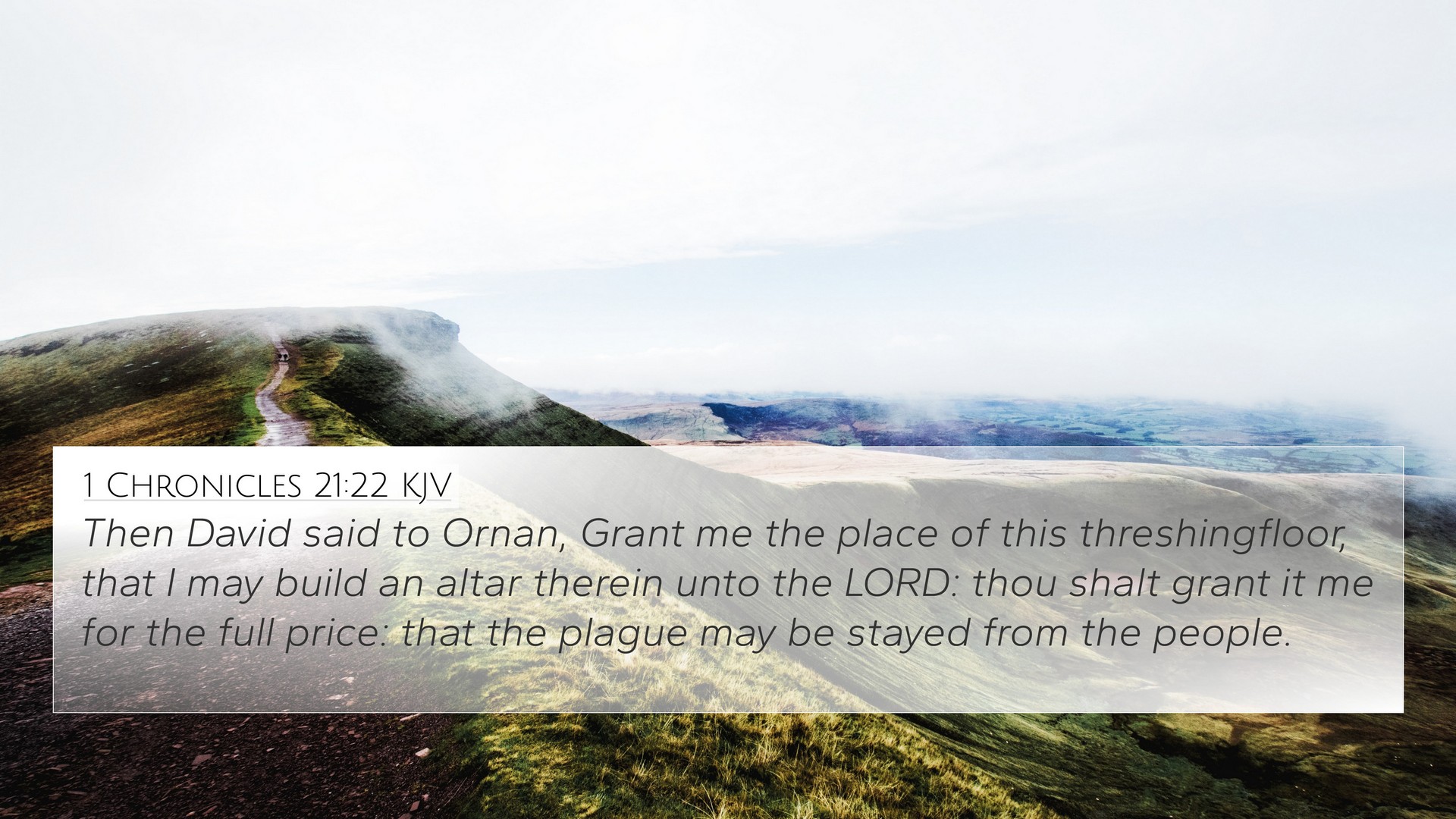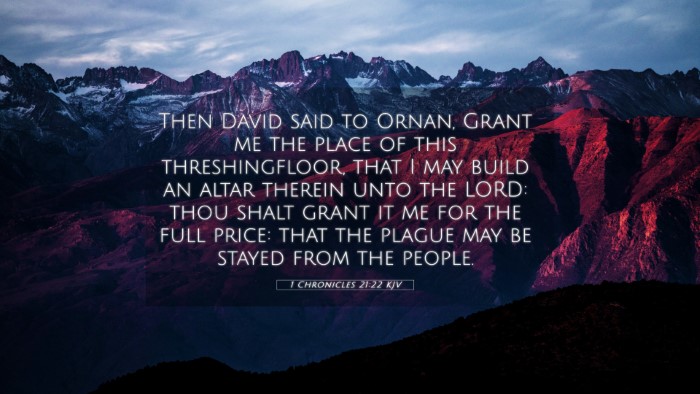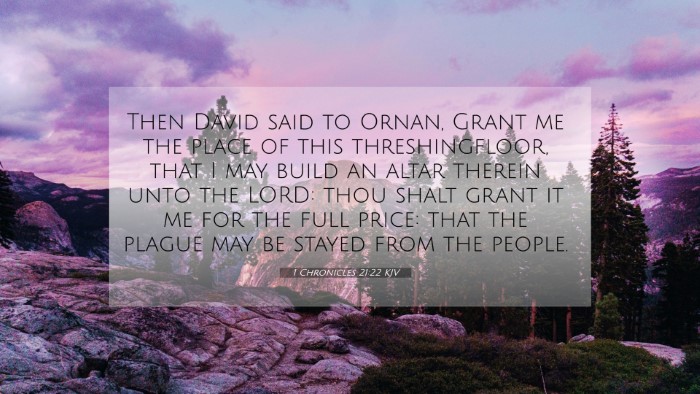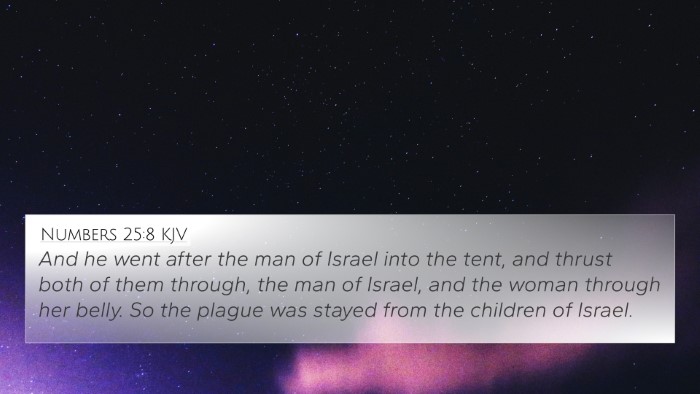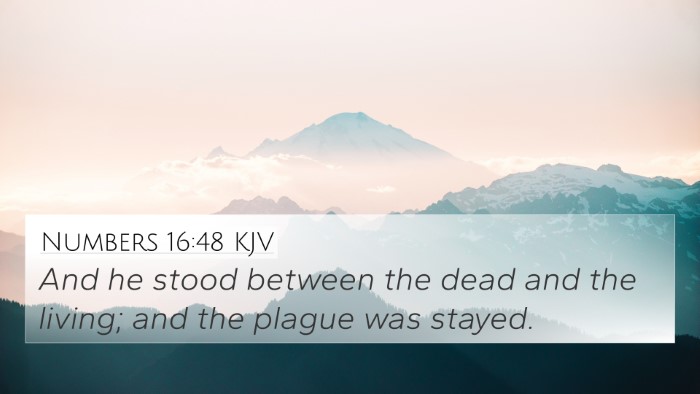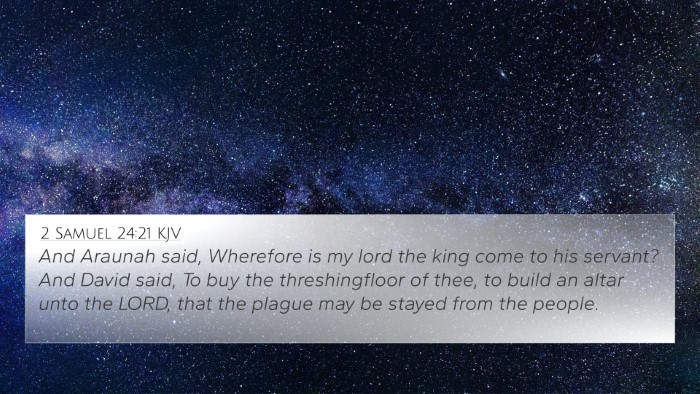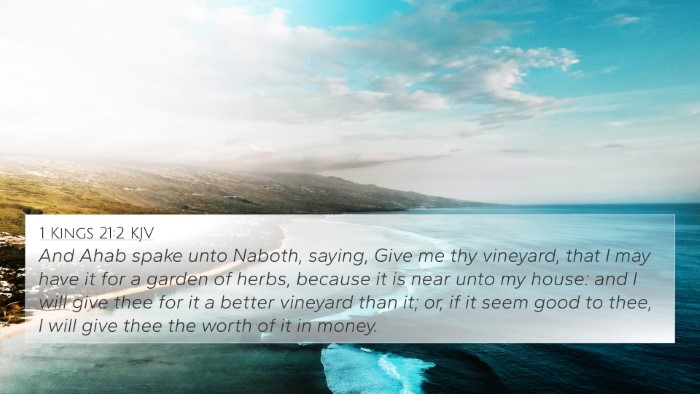Understanding 1 Chronicles 21:22
Verse: “And David said to Ornan, Grant me the place of this threshing floor, that I may build an altar therein unto the Lord: and thou shalt grant it me for the full price: that the plague may be stayed from the people.”
Overview
This verse depicts a pivotal moment where King David seeks to purchase a threshing floor from Ornan to build an altar to the Lord. This act is significant for David, illustrating his deep desire to atone for the sins of Israel and halt the divine judgment manifested by a plague. Textual analysis reveals layers of meaning, including themes of repentance, sacrifice, and the importance of rightful worship.
Key Themes in 1 Chronicles 21:22
- Repentance: David acknowledges the gravity of the plague and seeks to make amends.
- Divine Worship: The act of building an altar signifies a return to proper worship practices.
- Personal Sacrifice: David insists on paying the full price, demonstrating that true worship requires personal investment.
Bible Verse Cross-References
This verse connects with various other scriptures that reinforce its themes:
- 2 Samuel 24:24: David refuses to offer to God that which costs him nothing, underscoring the importance of genuine sacrifice.
- 1 Peter 2:5: Believers as living stones, being built into a spiritual house, reflect the relevance of dedicated spaces for worship.
- Exodus 20:24: Instructions on building altars illustrate God's desire for reverence and sincerity in worship.
- Hebrews 13:15: The concept of offering praise as a sacrifice connects to worship practices in Old Testament and New Testament.
- Genesis 8:20: Noah’s altar after the flood signifies offerings of worship as a response to God’s grace.
- Psalm 51:17: The sacrifice of a broken spirit aligns with David’s heart of repentance.
- Matthew 5:23-24: The importance of reconciliation before offering reflects the principle of sincere worship.
Comparative Bible Verse Analysis
The connections between Bible verses, particularly between the Old and New Testament, showcase God’s unchanging nature regarding worship and sacrifice.
1. David’s Sacrifice and Its Echo in the New Testament
Like David, who offers a costly gift to avert judgment, Christians are called to offer their lives as living sacrifices (Romans 12:1). This parallel emphasizes the concept that true worship entails sacrifice and devotion.
2. Themes of Atonement
The request to build an altar as a means to stay the plague aligns with the sacrificial themes present in Levitical law, and finds completion in Christ's ultimate sacrifice, which atones for sin (Hebrews 10:4-14).
Tools for Bible Cross-Referencing
To understand the linkages between scriptures more effectively, employing tools like a Bible concordance or a cross-reference Bible study guide can provide a comprehensive look at thematic and contextual relationships.
How to Use Bible Cross-References
- Identify Themes: Look for common themes in verses, such as sacrifice, repentance, and worship.
- Study Context: Understand the context of verses to see how they interact with each other.
- Use Reference Materials: Utilize reference resources for in-depth study and thematic exploration.
Inter-Biblical Dialogue
This verse and its themes resonate across different Testament writings. By exploring these interconnections, believers enhance their understanding of God’s covenant relationship with humanity.
Identifying Connections Between Old and New Testament
As seen through David's desire to build an altar and through Christ’s establishment of a new covenant, the emphasis on personal sacrifice and sincere worship remains central throughout scripture. Each instance amplifies the overarching narrative of redemption and the call to genuine faithfulness.
Conclusion
1 Chronicles 21:22 offers profound insights into the nature of worship, sacrifice, and God's mercy. Through biblical cross-references, the interplay of themes across scriptures reveals a cohesive design by God, inviting believers to engage deeply in their faith. Utilizing tools for cross-referencing enriches our understanding and encourages ongoing exploration of the biblical text.
